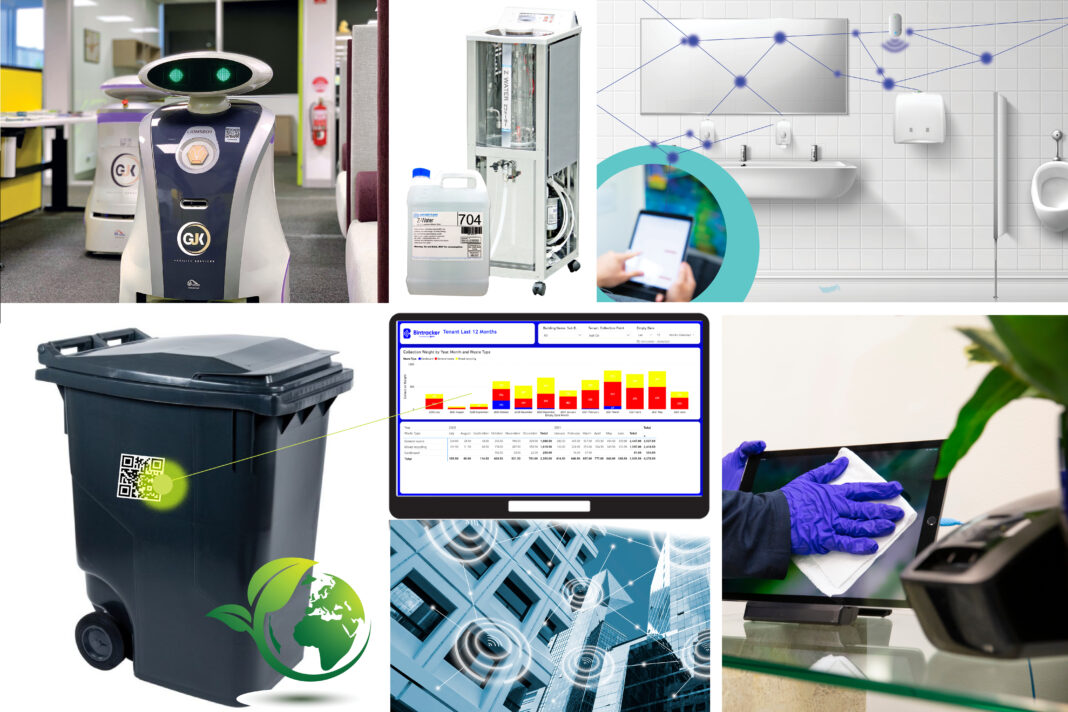Enhancing sustainability while improving well-being is a common goal among office buildings and industrial complexes. An essential first step in achieving this goal is the widespread adoption of non-toxic and biodegradable cleaning products. These environmentally friendly substitutes protect worker health by enhancing indoor air quality and reducing their negative effects on the environment. Businesses that adopt these strategies show that they care about the well-being of their employees and are dedicated to a healthier, greener future.
The demand for healthier work environments
Today, more than ever, the modern workforce is concerned about their health. Workers are worried about their working conditions, the food they eat, the air they consume, and their health. Research has shown that the quality of indoor air can significantly affect employee satisfaction, health, and productivity. Breathing difficulties, allergies, and other health concerns can result from poor indoor air quality, which is frequently made worse by strong chemical cleaners.
People are becoming more conscious of how conventional cleaning chemicals affect the environment. Conventional cleansers often contain dangerous chemicals that can contaminate the air and waterways, endangering aquatic life as well as contributing to pollution of the air and water. Consequently, there is growing pressure on companies to implement more environmentally friendly cleaning procedures help reduce their carbon footprint.
The role of biodegradable and non-toxic cleaning agents
Biodegradable and non-toxic cleaning agents represent a significant shift towards sustainability and environmental responsibility. Made from natural ingredients, these cleaners offer a safe, eco-friendly alternative to conventional products. Unlike their chemical-laden counterparts, biodegradable agents break down swiftly and harmlessly in the environment, curbing the risk of pollution and minimising exposure to hazardous substances.
A key advantage of biodegradable and non-toxic cleaning agents lies in their capacity to enhance indoor air quality. Traditional cleaners often emit noxious fumes that can compromise respiratory health. In contrast, biodegradable formulations are gentle on the respiratory system, emitting no toxic gases. This fosters a safer and more comfortable workspace and elevates employee morale and productivity by reducing the risk of respiratory ailments.
The safety profile of biodegradable and non-toxic cleaning agents extends to those who handle them. Many conventional cleaning products contain abrasive chemicals that can trigger skin irritations, eye discomfort, and respiratory distress. Biodegradable cleaners boast a gentle yet effective composition, making them suitable for individuals with sensitivities or allergies. This inclusivity ensures that all members of the workforce can contribute comfortably to maintaining a clean and healthy environment.
By embracing biodegradable and non-toxic cleaning agents, businesses prioritise the well-being of their employees and underscore their commitment to sustainability. These eco-friendly alternatives help reduce environmental impact and promote a culture of health and responsibility within the workplace. As companies strive to create greener, healthier environments, the implementation of biodegradable cleaning agents emerges as a pivotal step towards achieving these objectives.
Promoting sustainability
Biodegradable and non-toxic cleaning products improve indoor air quality and worker health and also play a critical role in promoting sustainability initiatives in the business world. Choosing environmentally friendly cleaning products enables businesses to reduce their impact on the environment and demonstrate their commitment to corporate responsibility.
Biodegradable cleaners are designed to break down quickly and naturally, reducing the amount of hazardous chemicals released into the environment. By taking preventative measures, we can protect species and ecosystems, preserving our planet for future generations. Moreover, a lot of biodegradable cleaning products come from renewable resources, which enhances their advantages for the environment. Businesses can contribute to a more sustainable future by reducing their overall environmental impact and reliance on scarce resources by utilising these renewable sources. Businesses can align their operational processes with eco-conscious ideas and promote a cleaner, healthier earth for both present and future generations by implementing biodegradable and non-toxic cleaning solutions.
Enhancing employee well-being
Improving employee well-being is a more comprehensive aspect of creating a healthy work environment than just reducing exposure to dangerous chemicals. Employee engagement, productivity, and job satisfaction are more likely to be higher when they feel safe and comfortable in their surroundings.
Biodegradable and non-toxic cleaning agents play a crucial role in cultivating a positive work environment by mitigating the risks of allergic reactions, respiratory ailments, and other health issues often associated with harsh chemical cleaners. By opting for these eco-friendly alternatives, businesses can proactively address employee health concerns, resulting in fewer sick days, reduced healthcare expenses, and increased employee retention rates. This enhances the quality of life for employees and yields tangible benefits for employers in terms of operational efficiency and organisational success.
Through the implementation of biodegradable and non-toxic cleaning practices, businesses demonstrate a commitment to prioritising the well-being of their workforce while fostering a culture of sustainability and responsibility. By choosing biodegradable cleaners for office cleaning in Sydney and facility services, businesses can create safer, more sustainable workplaces that support the health and happiness of their employees while demonstrating their commitment to corporate responsibility.



